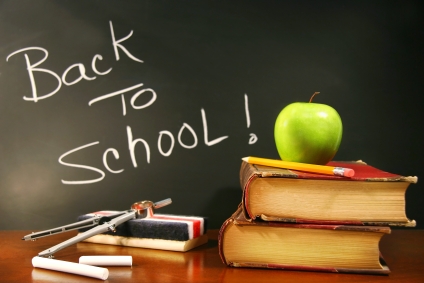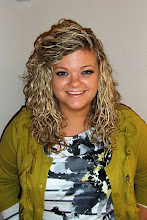We’ve all been there before: your toddler gets hungry or bored in the supermarket and throws an embarrassing temper tantrum in aisle 3. Or your teenage son starts getting fidgety during a dinner party and tries to stick his spoon to his nose. Kids will be kids, but what do you do when your child is bored with his speech therapy activities? If your child’s speech-language pathologist (SLP) has informed you that little Matthew seems to be slacking off in his efforts during speech therapy, he might be getting bored with the activities. Most kids crave entertainment and stimulation. Instead of trying to cajole your child to put in more effort, change the method of instruction. Talk with the SLP about the current activities she is using during speech therapy sessions and review what you’re doing at home. To keep your child engaged in learning, a change is definitely in order.
Top 5 Questions to Ask Your Child’s Speech Therapist This Fall
Speech TherapistChildren tend to approach the back-to-school season with a mix of apprehension and excitement. Your kidling might be enthusiastically embracing his brand-new sweaters that allow him to dress up like a pint-sized Jake Gyllenhaal, but at the same time he’s a little nervous about meeting his new teacher and navigating the school hallways. Parental viewpoints are remarkably similar. We might embrace a more structured schedule and we’re eager for them to explore the world around them, but we’re a bit nervous, too. This is especially true if you’re the parent of a child with special needs, like a speech disorder. Children with special needs often have a more difficult time with transition periods. It’s a good idea to chat with your child’s speech therapist about his needs as he enters a new grade. Consider it like a check-up. Use the following questions as a focal point for your conversation with the speech-language pathologist (SLP).
Back to School: Preparing for Another Year
Individualized Education Program (IEP)Whether you are eagerly anticipating the sounds of the school bus or are already experiencing premature empty nest syndrome, there’s no denying that the start of another school year signals a transition for your child. Preparing your child to go back to school requires so much more than just buying him school supplies and the latest fashions in celebrity-inspired clothes. If your child has a speech disorder, you’ve probably already spent the summer doing language enrichment activities. Now it’s time to review his Individualized Education Program (IEP) and talk to the school district about changing it, if necessary. It’s also a good idea to get in touch with your child’s new teacher and/or new special education teacher.
An Interview with Jenna Rayburn, SLP
InterviewsTeachers are so important in a child’s life. A child will often cherish the memories of a really great teacher for years after they graduate. Kids with speech disorders who work with a speech-language pathologist (SLP) are no different. SLPs try to make speech therapy fun and exciting to help the child learn speech and language skills without it feeling like a chore.
Kids who enter certified SLP Jenna Rayburn’s speech therapy room are likely to play an articulation-oriented game of Candy Land, work with magnets to create stories and learn proper sentence structure, and play a whole host of other innovative games while reaching their speech therapy goals. They can even work on their articulation skills while playing Twister. Jenna Rayburn uses her incredible creativity to turn children’s games into speech therapy lessons, and she shares her ideas on her blog, Speech Room News. Jenna loves incorporating both classic games and new technology into her lesson plans. Read on to find out Jenna’s tips for parents who are new to speech therapy and those who are looking for fun ways to do at-home speech therapy exercises.
Humanizing Special Ed
Individualized Education Program (IEP)It’s easy for parents and educators alike to get lost in the Individualized Education Program (IEP) process and the numerous Individuals with Disabilities Education Act (IDEA) regulations. In an IEP meeting stuffed full of lawyers, speech therapists, occupational therapists, educators, and administrators, where exactly does your child fit in? Sure, the entire meeting is about his speech disorder and particular needs, but in a sea of acronyms (ESY, FAPE, S/LI, and TSS, to name just a few) it can be easy for the IEP team to forget that there is an actual child at the heart of all that jargon. No one knows your child and his speech therapy needs better than you and your partner. You’ve looked after his health from conception onward and made sure he had everything from healthy foods to speech therapy tools. So when it’s time to advocate for him in an IEP meeting and elsewhere at school, make sure that the people who are discussing his education actually know who he is.





